‘We need to assume less and listen more’
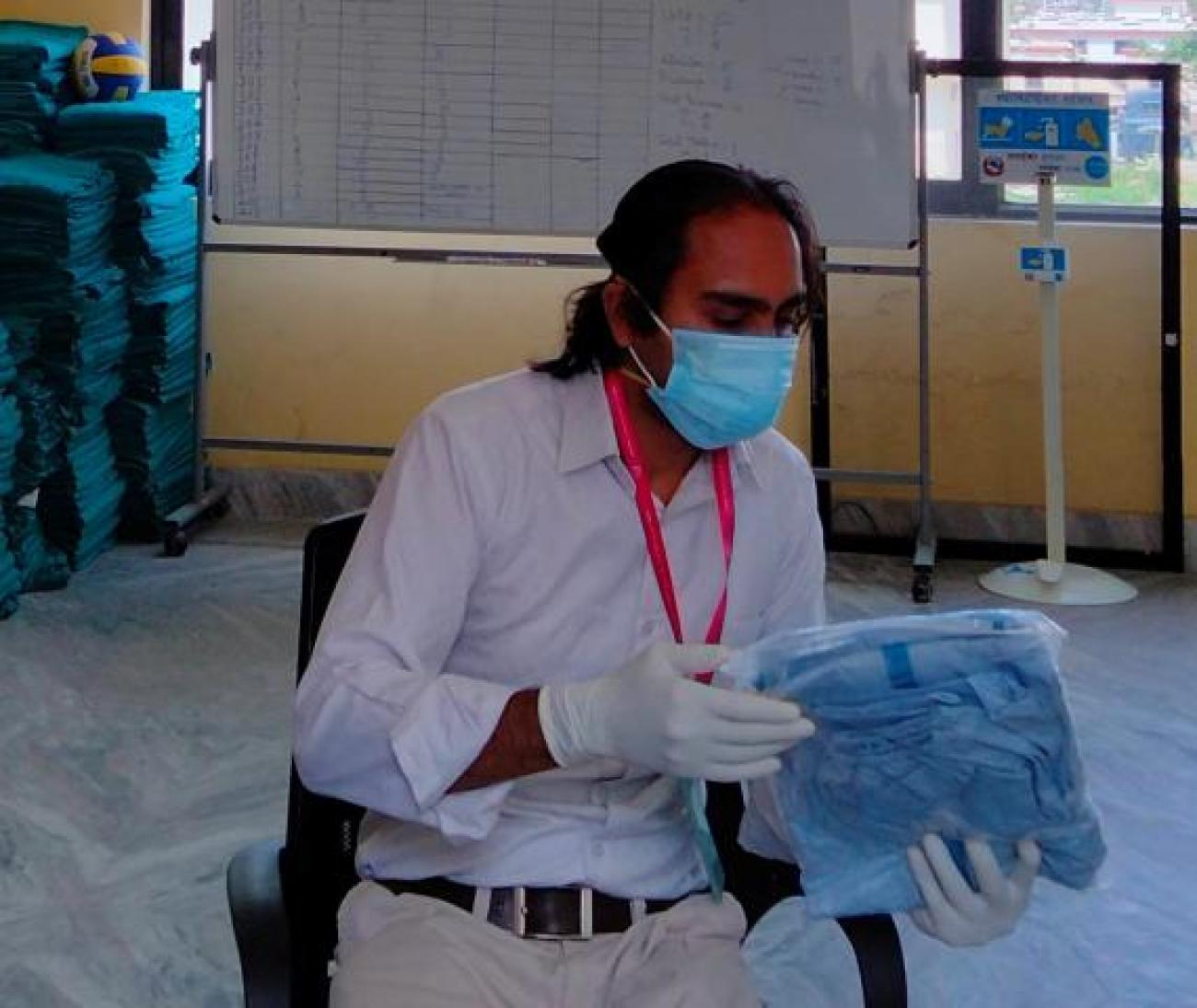
To address the mental health burden on children and adolescents that has been exacerbated by the COVID-19 crisis, UNICEF and partners are working.
“If there’s one thing the pandemic has done, it’s to open up conversations about and really underline the importance of mental health support mechanisms – especially for children.”
Clinical psychologist Ram Pukar Sah has been with the Kanti Children’s Hospital in Kathmandu for four years, during which he has worked with his team to help children and adolescents in need of counselling and treatment. And this past year – owing to the uncertainty, restrictions and vast changes that COVID-19 has brought to our lives – he says that there have been some very specific and worrying impacts on children and adolescents' mental health.
“Children haven’t gotten to socialize, they are stuck at home, they are afraid …. and many are spending too much time on electronic gadgets,” he says. “All this is affecting their overall development, particularly in younger children below six, whereas in the case of older children, we are seeing a lot of anxiety and stress about their studies and the future.”
Recognizing the urgent need for mental health support for children in the context of the COVID-19 crisis, UNICEF initiated the child and adolescent mental health (CAMH) programme in 2020, in collaboration with the Kanti Children’s Hospital/CWIN Nepal. Led by experts in the field of child psychiatry and psychology like Ram Pukar, a variety of interventions have been taken forward – including training for psychosocial counsellors around the country, mental health sessions for teachers, nurses/frontline health workers and caregivers of children, as well as sessions designed for children themselves.
In the span of just seven months, the programme was able to reach more than 20,000 parents, teachers and caregivers; more than 1,900 nurses and frontline health workers and more than 21,000 children.
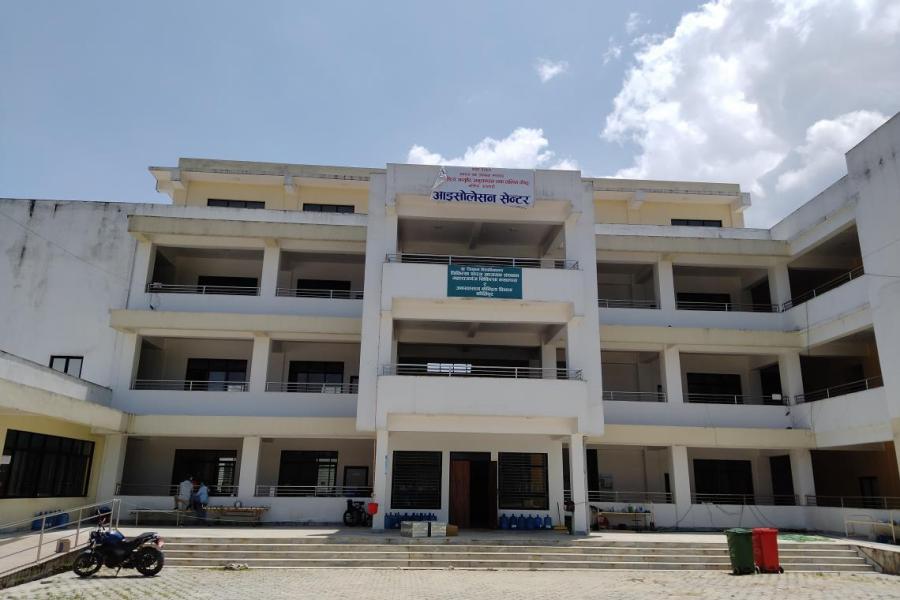
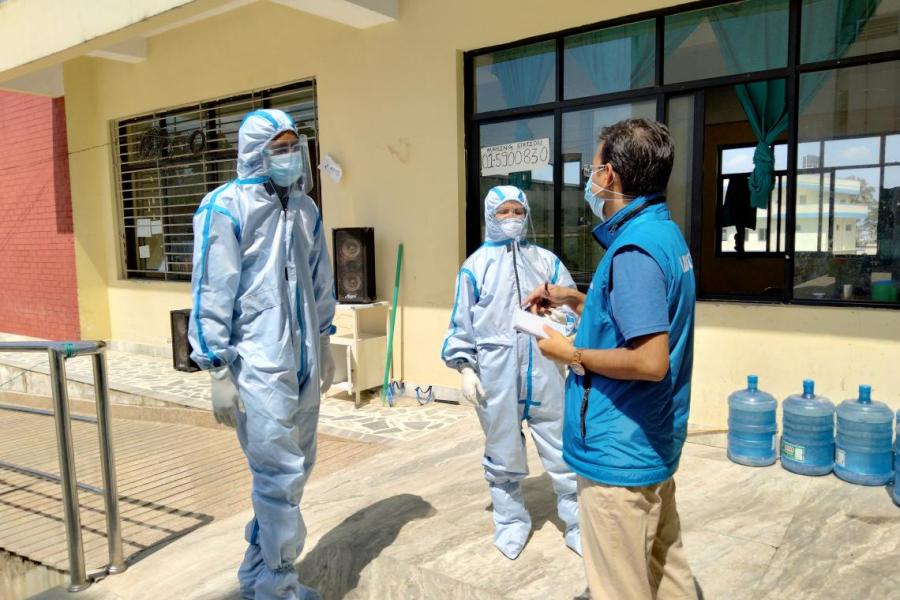
One of the most recent of these efforts was targeted at a group of 40 children and adolescents who had tested positive for COVID-19. The group was staying in isolation at the National Ayurveda Research and Training Center (NARTC) in Kirtipur, Kathmandu, where the CAMH team including Ram Pukar went in to provide a number of support sessions.
“Having to stay idle for long periods of time is difficult for anyone, but especially for children,” he says, explaining how the team was immediately able to identify anxiety and depression related symptoms in a number of the young patients.
“It’s important to catch such symptoms early on,” Ram Pukar says. “This can help to reduce the risk of disorders and help them to cope better.”
During the three sessions that were conducted at the facility, besides group discussions and interactions, the children were also taught different relaxation and deep breathing exercises, as well as stretching techniques to help with managing stress.

In addition, to further support the facility in keeping the children’s minds and bodies engaged during their stay, UNICEF also provided a number of recreation kits, containing a variety of toys, books, stationery and indoor games, as well as personal hygiene supplies.
Rabina Maharjan, staff nurse at NARTC, says that the recreational materials were very well received by the children. “We generally made sure to do an hour of exercise and meditation, and an hour of entertainment with songs and dances, every day,” she says. “And with the sessions and the toys and other items, the children were able to fill their hours even more.”
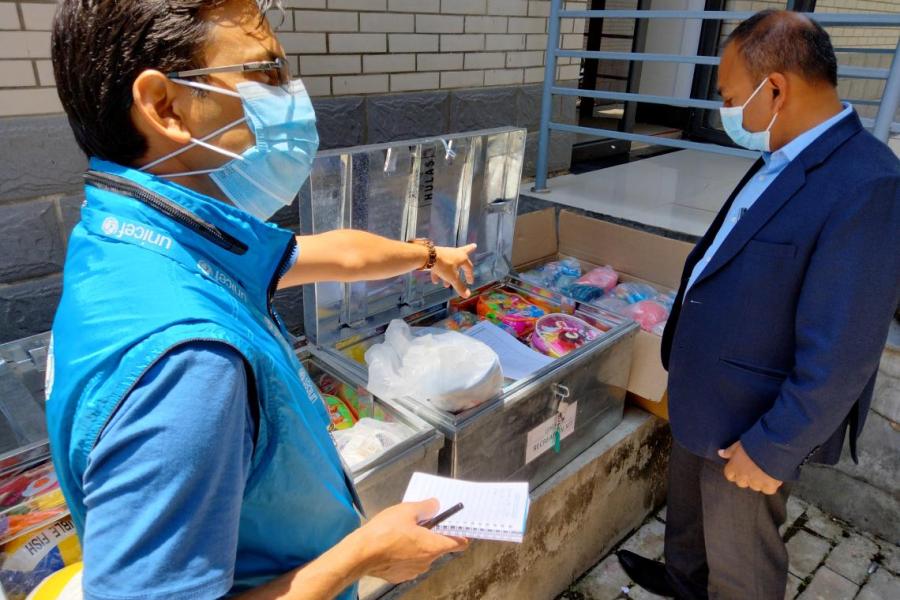
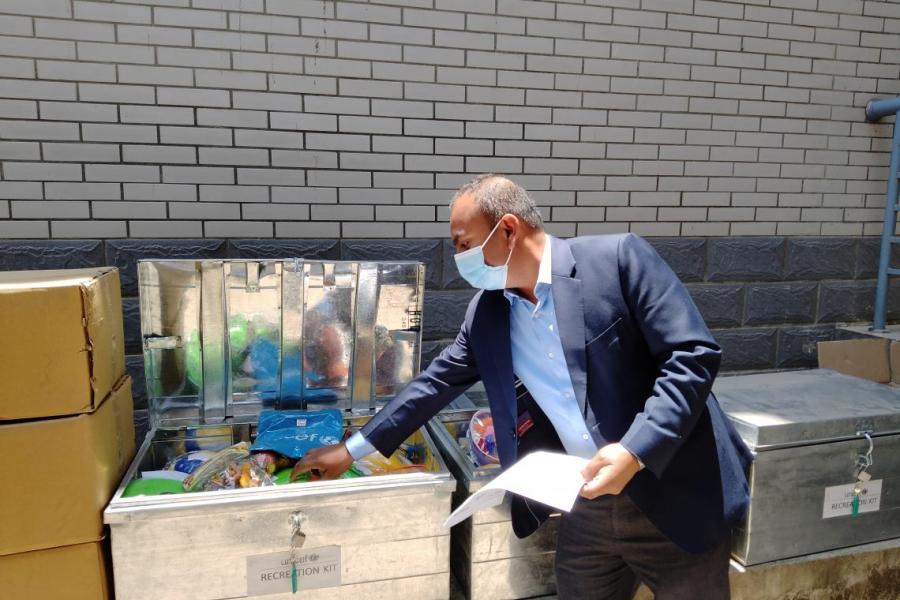
Rabina has a young child herself, whom she hasn’t gotten to spend much time with since starting her shifts at the isolation center. But being around the children and getting them through this difficult time helped her too, she says.
“It wasn’t as easy to interact very freely, because we had to wear protective gear around them, but seeing the children’s faces light up when they saw us made me very happy. They reminded me of my own daughter.”
According to Rabina, following the mental health sessions, two children who had been wetting their beds – often a sign of deep stress – stopped doing so. And five children were identified as requiring individual counselling, with whom the team will be following up in the days to come.
All 40 children have since recovered and been discharged.
For Ram Pukar, the mental health impact of the crisis on young people has raised a clear red flag about the need for support services, and compelled people to talk more openly about mental health. It has also, he believes, expanded people’s understanding of how counselling and treatment work. “There is generally this one-size-fits-all approach, where people think you just need to give those who are suffering some advice about staying positive and direct them to change their habits,” he says. “While such exercises can help in managing general stress, for those undergoing deeper problems, this is often not enough.”
He relays how he has come across parents who bring their children to him with the expectation that he will fix them, and who pile on pressure on their children to be cheerful, to study more. This is not helping, and there is no “quick fix”, according to Ram Pukar.
“Children and young people need to be able to express what they are feeling, to know that these feelings are valid, and to be heard on a case-by-case basis, before we can recommend next steps on helping them,” he says.
“We need to assume less and listen more.”


